By plane
The only rapid means of long-distance travel within Indonesia is the plane. The largest domestic carriers are state-owned Garuda and private competitor Lion Air, but in recent years a host of low-cost competitors have sprung up, including Adam Air, Indonesia Air Asia (formerly AWAIR), Air Efata, Batavia Air, Mandala and many more. Routes for less popular destinations and routes (particularly in eastern Indonesia) are served by Garuda's little buddy Merpati, memorably summarized as "It's Merpati and I'll fly if I want to", AirFast, Sriwijaya, Jatayu and more, often flying smaller planes. If you really get off the beaten track, eg. settlements in Papua, there are no scheduled services at all and you'll need to charter a plane or hitch rides with missionaries.
Many carriers have poor on-time records and frequent cancellations, and the safety record of the smaller companies is dubious, with Adam Air, Lion Air and Mandala suffering fatal crashes in recent years. A majority of the aircraft are planes from the 1970s and 1980s, which have been flown by many previous operators and may be poorly maintained. A select a few carriers, such as Garuda, Lion Air, and Mandala among others, have recently bought brand new planes straight from an aircraft manufacturer which have replaced some of the older planes in their fleet. Still, compared to the carnage on Indonesia's roads, a flight even on an aging turboprop is probably far safer — and far more comfortable — than traveling the same distance by bus. Garuda and Air Asia are run to international standards and are considered the safest options.
Prices are low by international standards, with more or less any domestic return flight available for under US$100 even on short notice, and fares for a fraction of that if you plan ahead. The hardest part is often finding what carriers serve what route and making a reservation, as many companies have not yet discovered the joys of the Internet, much less set up online booking engines. When traveling off the beaten track, it's imperative to reconfirm early and often, as frequencies are low and paid-up, occasionally even checked-in passengers are bumped off with depressing regularity if a VIP happens to show up. Make sure you arrive at the airport at least 2 hours before the departure time, because airline staff often sell your seat to other passengers if you are late.
By boat
Indonesia is all islands and consequently ferries have long been the most popular means of inter island travel. The largest company is PELNI, which visits practically every inhabited island in Indonesia. Schedules are notional, creature comforts sparse and safety records poor. Try to scout out what, if any, safety devices are on board and consider postponing your trip if the weather looks bad.
You may get hassled by people onboard trying to extract extra money under some dubious excuse. Feel free to ignore them, although on the upside, it may be possible to bribe your way to a better class of accommodation.
By train
PT Kereta Api runs trains across most of Java and some parts of Sumatra. The network was originally built by the Dutch, and few new lines have been built since the Independence. Double-tracking of the most congested lines have been done, though, and is still ongoing. Maintenance is spotty and derailments and crashes occur occasionally.
Java by far has the best railway network, with trains connecting the capital city of Jakarta with other main cities, i.e. Surabaya both via Semarang on the north coast and via Yogyakarta and Solo through the southern main line. Bandung is connected to Jakarta by some 30 trains per day, and is itself connected to Surabaya through Yogyakarta. Bali has no railway lines, but there are trains from Surabaya to Banyuwangi, connecting with ferries to the island.
Sumatra's networks are concentrated on the northern (around >Medan) and the southern (Palembang) parts of the island. Passenger trains on the island are much less frequent than in Java.
Type of service: 1. Air-conditioned Eksekutif class 2. Bisnis 3. Ekonomi classes are also available for the more budget-conscious traveler, but comfort and safety are noticeably less (due to congestion and length of travel time).
No sleeping car service is provided in Indonesia, and the best accommodation provided is air-conditioned, adjustable reclining seats in the Argo and other eksekutif class trains.
Ticket reservations can be made one month in advance, although generally tickets will still be available almost to the last minute. An exception is the very busy Lebaran season, in which time it is not advisable to travel due to the extremely high demand for tickets. No on-line ticket reservation is available, but availability can be gleaned on PT Kereta Api's ticketing site.
Generally, trains in Java travel through scenic areas, and travelers not in a hurry should consider the length of the journey and the scenery as a bonus to his travels. However, theft is common, particularly on overnight journeys, so padlock your doors if possible.
By bus
The major types of buses are air-conditioned bus (AC) and non-air-conditioned bus (non-AC or "economy class"). The air-conditioned chartered buses can be rented with its drivers for a tourist group. Indonesian bus companies offer intercity and interprovince routes. The interprovince routes usually include transportation to other islands mainly between Java and Sumatra.
Bus maintenance is poor, and drivers are often drunk, on drugs or just reckless. Long, overnight journeys are particularly dangerous. Guard your bags like a hawk. In the wilder parts of the country (notably South Sumatra), interprovince buses are occasionally ambushed by bandits.
By car
Indonesian driving habits are generally atrocious. Lanes and traffic lights are happily ignored, passing habits are suicidal and driving on the road shoulder is common. Buses are particularly bad, as they both speed like maniacs and stop without warning to pick up fares. Pedestrians can be found crossing the road anywhere, even across highways. Police tend to concentrate on extracting bribes, not actually doing anything about the mess.
That said, renting a car in Indonesia is cheap compared to renting in other countries, and despite recent fare hikes gas remains cheap (fixed price for gasoline is Rp 4500/litre and price of diesel fuel is Rp 4300/litre). To drive a car yourself, an International Driver Permit is required, but it is strongly recommended that you consider renting a car with driver, because the additional cost is quite low and having a traffic accident in Indonesia will certainly spoil your trip.
Road condition and road maintenance in Indonesia is poor. If you go outside major cities, you should use a four-wheel drive car (Kijang jeeps are popular). During rainy season, major roads in Sumatra, Kalimantan and Sulawesi are flooded for several weeks. Several important, old bridges in Sumatra had collapsed recently.
Traffic moves on the left in Indonesia.
By becak
Becak ("BEH-chuck") is a tricycle (pedicab) transportation mode for short distances such as residential areas in many cities. In some areas, the driver is sitting at the back of the passenger, but in some areas (like Medan) the driver is sitting on the side of the passenger. Good communication skills is integral to prevent getting overcharged on these rides. Often, sly drivers try to get some more money out of you after you've reached your destination, so be sure that you know how much it costs beforehand.
Note that there are no becak in Jakarta. Instead, the motorized bajaj (BAH-jai), somewhat similar to the Thai tuk-tuk, serves the same function. In some other provinces (eg. North Sumatra, Aceh) you can also find motorbikes with sidecars, known as bentor (short for becak bermotor).
By ojek
If you're in such a hurry that you're willing to lose a limb to get there, then ojek motorcycle taxis might be the ticket for you. Ojek services consist of guys with bikes lounging around street corners, perhaps identified with a colored, numbered jacket, who usually shuttle short distances down alleys and roads but will also do longer trips for a price. Haggle furiously.
May 20, 2008
Subscribe to:
Post Comments (Atom)
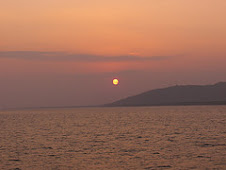
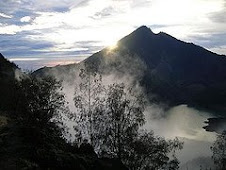
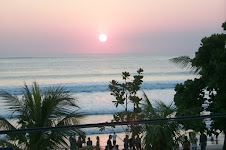
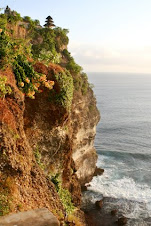
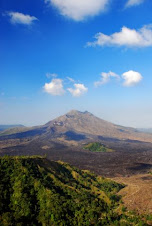

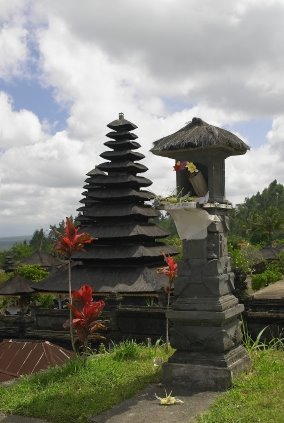
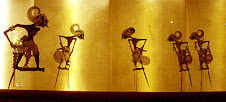
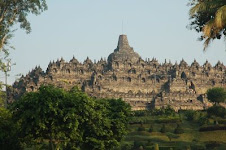
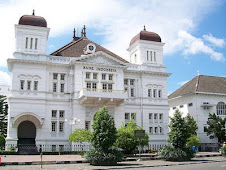

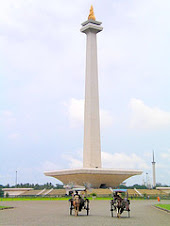
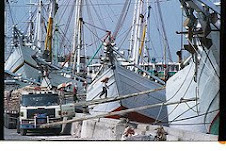
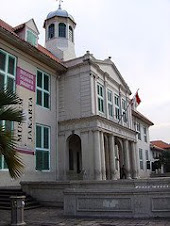
.jpg)

No comments:
Post a Comment